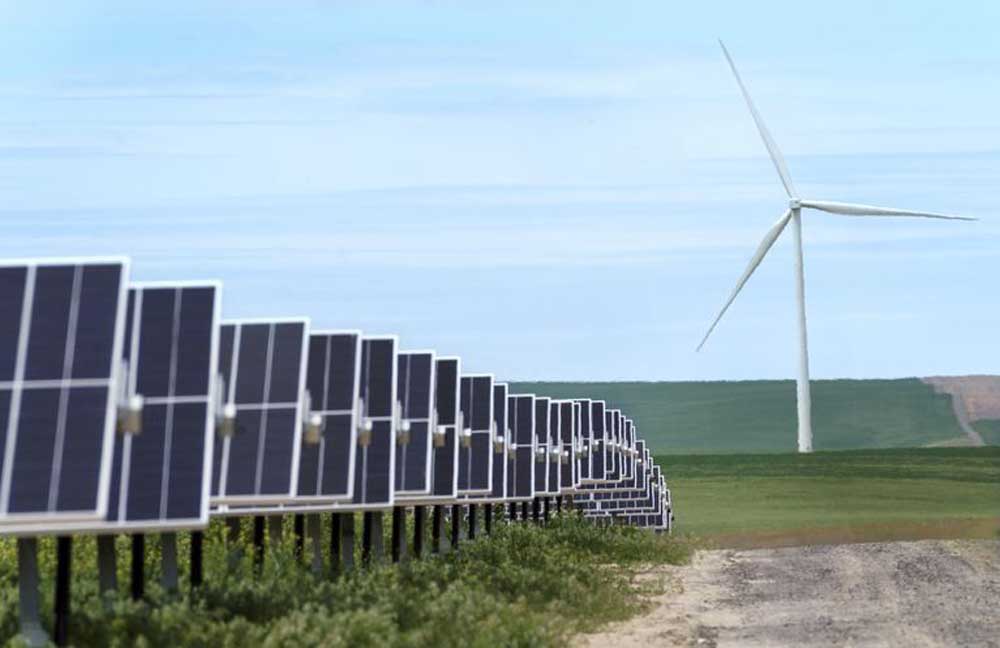Voice of the Chieftain: Giving Eastern Oregon a seat at the table
Published 6:00 am Wednesday, May 17, 2023
This editorial was written a few days before we knew the results of the May 16 election, so it was anybody’s guess how the Greater Idaho measure on the Wallowa County ballot would fare. (By the time you read this, we should have updated election results on our website, wallowa.com.)
The measure, similar to ones that have passed in 11 other Oregon counties, calls on Wallowa County commissioners to twice a year discuss “how to promote the interests of Wallowa County that would be relevant to a relocation of state borders, and to prepare the county for becoming a county of another state” — namely, in this case, Idaho.
A similar measure narrowly failed in Wallowa County in 2020.
Pass or fail on Tuesday, though, one thing seems certain: The Greater Idaho effort isn’t going away — and it doesn’t look as if growing organized opposition to the idea will be fading away, either.
On one level, of course, the measure isn’t really about moving Wallowa County into Idaho — even many of its proponents say that’s a long shot at best.
Rather, the movement is intended to send this message to lawmakers and state officials in Salem: The voice of Eastern Oregon — politically, economically, culturally — is not being heard in the halls of state government.
So when the Chieftain sat down with Gov. Tina Kotek during her recent visit to Wallowa County, we asked her this question about the Move Oregon’s Border movement: What signals can state government send to Eastern Oregonians to make them think that, after years of being ignored, they finally have a seat at the table? (Or, in the language of “Hamilton,” Eastern Oregonians get to be in the room where it happens?)
This was Kotek’s reply: “You have to show it, first, in legislation, in the budget discussions. For me, it’s making sure that all parts of the state have prosperity so that the resources are equitably distributed.”
Kotek said she would sign two bills of significance to Wallowa County if they passed the Legislature: One of the bills, House Bill 3317, would create and fund a countywide board to work on affordable housing and workforce development. The other, Senate Bill 955, allocates $300,000 to establish an AgriStress Helpline to offer assistance to workers in natural resources industries who are coping with stress in their lives.
While Kotek’s support for the bills is gratifying, it would send a powerful message to Wallowa County residents (and folks throughout Eastern Oregon) if she publicly went to bat for both bills with the Legislature’s Ways and Means Committee.
Kotek also pointed to her work in the Legislature to raise the minimum wage in Oregon as a possible model for the state to follow as it rolls out new programs. The legislation raised wages throughout the state — but it divided the state into three regions, with different wage structures for each. As Kotek noted, “We said, ‘We have to have livable wages for everybody. But let’s do it in a way that makes more sense for the economic areas of the state.’”
She added: “I think that’s a good model, a good example of where people said, ‘Well, we’re all one state, but parts of the state can be different.’”
It’s not easy — as Kotek noted, that mininum-wage effort “was a good two years of my life.”
And it’s a model that might be particularly challenging on issues that aren’t economic — cultural or societal issues such as gun control, for example.
But it’s a model that leaves room for voices throughout the state to speak their piece — and to feel as if their words mattered.
And Kotek said she’s listening: “It hurts my heart to think that someone who lives in a community as beautiful as this, and is such a part of Oregon’s history, feels like no one on the other side of the state is listening and would rather be with another state. If that’s how people are feeling, as a governor, I don’t want to hear that. We’re not doing our job well.”








